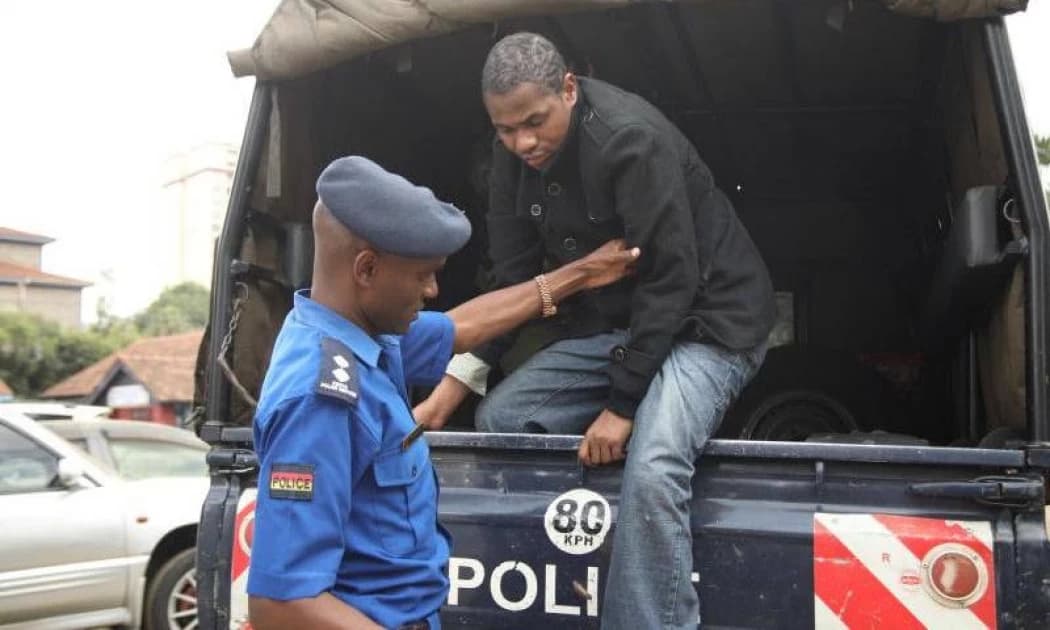We're loading the full news article for you. This includes the article content, images, author information, and related articles.
Homeless patient charged with two murders inside Kenyatta National Hospital.

Kennedy Kalombotole, the unidentified man accused in two fatal attacks on patients at Kenyatta National Hospital (KNH), has officially faced murder charges, as the court mandates a mental health assessment before his plea can be entered.
On July 29, 2025, during a session before Justice Diana Kavedza at the Nairobi High Court, Kalombotole was formally charged with murdering Edward Maingi Ndegwa on July 17, 2025, in Ward 7B, and also accused in the earlier killing of Gilbert Kinyua Muthoni in Ward 7C in February 2025. Kalombotole did not enter a plea. Instead, the court directed that a mental evaluation be conducted at Mbagathi Hospital, citing concerns about his health and capacity to participate in proceedings. He will be detained at Industrial Area Remand pending trial.
Kalombotole suffers from type 2 diabetes, epilepsy, and recurrent seizures—conditions exacerbated by medication non-compliance. A magistrate has ordered strict medical supervision, including insulin administration and restrictions on handling needles.
Complicating matters, authorities have been unable to verify his identity. Kalombotole lacks any formal identification, known relatives, or current address. Fingerprint scans and public appeals for identification have so far failed.
A DCI report dated June 30, 2025, implicated Kalombotole in the murder of Gilbert Kinyua, recommending immediate charges based on forensic and testimonial evidence—namely, a trail of blood leading from the victim’s bed to Kalombotole’s, and blood-stained sandals linked to him. Despite this, the Office of the Director of Public Prosecutions (ODPP) delayed action. Only after the second murder of Edward Maingi did charges proceed.
The two ward killings at KNH triggered national outrage and raised urgent patient safety concerns. In response, Health Cabinet Secretary Aden Duale mandated a security overhaul across referral hospitals, including visitor limits, anonymous incident reporting tools, and enhanced staff training on patients’ rights.
|
Issue |
Implications |
|---|---|
|
Judicial Preparedness |
Mental assessment will determine fitness to stand trial and true intent |
|
Institutional Gaps |
The lingering inability to identify Kalombotole highlights systemic weaknesses |
|
Delayed Criminal Prosecution |
ODPP’s hesitation on DCI evidence drew scrutiny over prosecutorial responsiveness |
|
Public Trust in Hospitals |
Fatal incidents within hospital wards reveal deeper security and oversight deficiencies |
The outcome of the mental evaluation at Mbagathi Hospital will determine whether Kalombotole is fit to enter a plea and proceed to trial.
The Director of Public Prosecutions may face further scrutiny over handling of prior recommendations from the DCI.
Efforts to uncover his identity will continue amid ongoing concerns about accountability and transparency.
KNH and other referral hospitals are under pressure to implement enduring safety reforms, including tighter access control and patient protection mechanisms.
As the case transitions into the formal trial stage, investigators and the court must navigate the intertwined complexities of mental fitness, identity, and delayed justice. The outcomes will set precedents not only for how criminal responsibility is determined but also how healthcare institutions safeguard vulnerable patients in the future.
Keep the conversation in one place—threads here stay linked to the story and in the forums.
Sign in to start a discussion
Start a conversation about this story and keep it linked here.
Other hot threads
E-sports and Gaming Community in Kenya
Active 9 months ago
The Role of Technology in Modern Agriculture (AgriTech)
Active 9 months ago
Popular Recreational Activities Across Counties
Active 9 months ago
Investing in Youth Sports Development Programs
Active 9 months ago
Key figures and persons of interest featured in this article